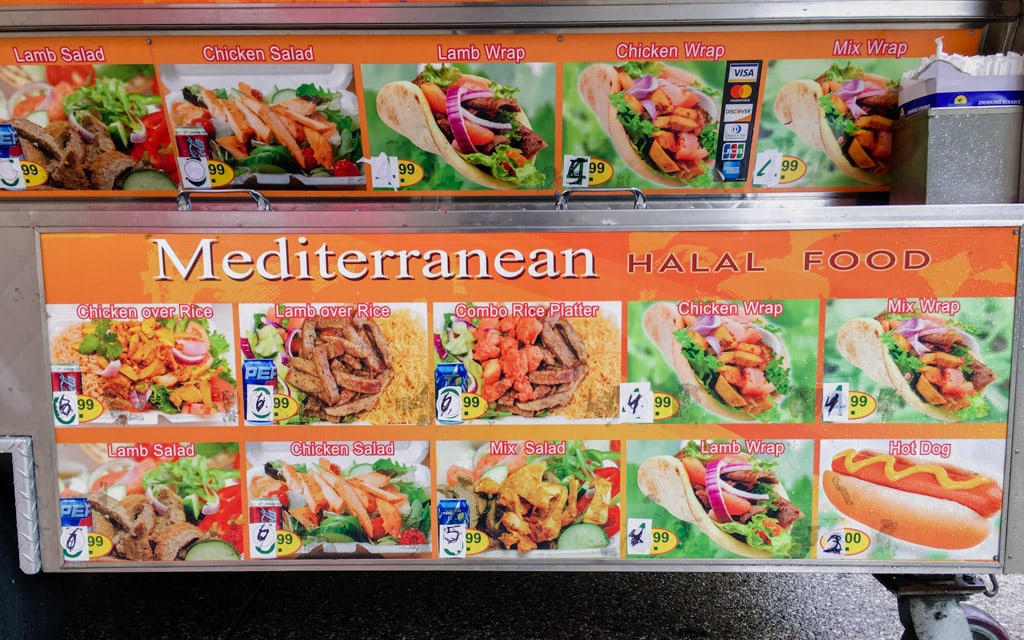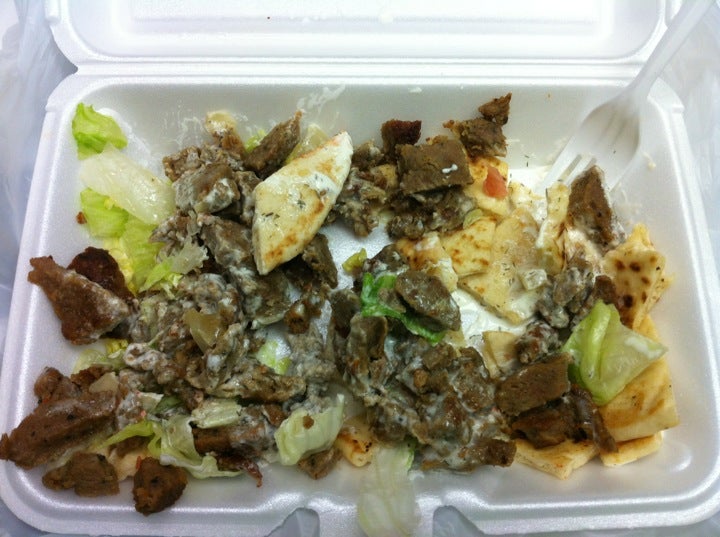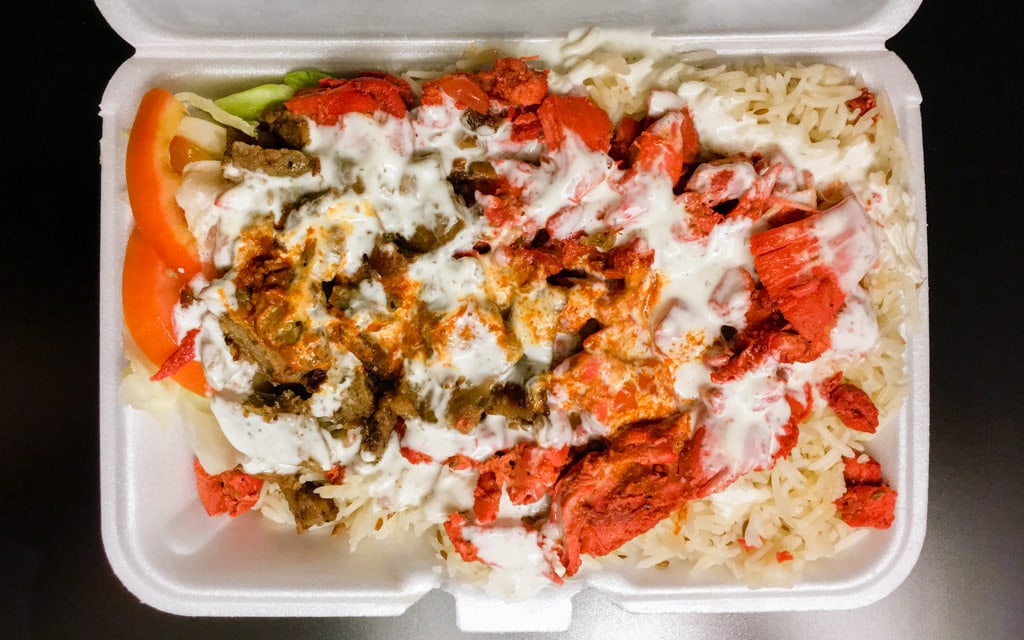Mediterranean halal food is a vibrant and flavorful cuisine that tantalizes the taste buds and nourishes the body. Originating from the shores of the Mediterranean Sea, this culinary tradition has been shaped by a rich tapestry of cultures and religions, resulting in a unique and delectable fusion of flavors.
From the bustling souks of Morocco to the sun-kissed beaches of Greece, halal Mediterranean cuisine showcases a diverse array of dishes that are both authentic and approachable. Whether you’re a seasoned foodie or simply curious about exploring new culinary horizons, this gastronomic adventure promises to delight and inspire.
Halal Mediterranean Cuisine
Halal Mediterranean cuisine is a culinary tradition that adheres to Islamic dietary laws, known as halal. It encompasses a diverse range of dishes and flavors from countries bordering the Mediterranean Sea, such as Turkey, Morocco, Egypt, Lebanon, and Spain.
The origins of halal Mediterranean cuisine can be traced back to the Arab conquest of the Mediterranean region in the 7th century. The Arab traders and settlers introduced their culinary practices and ingredients to the local populations, blending them with existing culinary traditions.
Cultural and Religious Influences
Halal Mediterranean cuisine is heavily influenced by the cultural and religious practices of the region. Islamic dietary laws prohibit the consumption of pork and alcohol, which has shaped the development of halal Mediterranean dishes.
Additionally, the region’s diverse cultural heritage has contributed to the variety of flavors and cooking techniques found in halal Mediterranean cuisine. Turkish cuisine, for example, is known for its use of yogurt and spices, while Moroccan cuisine is characterized by its vibrant tagines and couscous dishes.
Ingredients and Flavors

Halal Mediterranean cuisine is a vibrant and flavorful culinary tradition that draws inspiration from the diverse cultures of the Mediterranean region. The dishes are characterized by their use of fresh, seasonal ingredients and a harmonious blend of spices and herbs.
Common ingredients in halal Mediterranean cuisine include:
- Vegetables: tomatoes, onions, peppers, zucchini, eggplant
- Fruits: lemons, oranges, olives, dates, figs
- Grains: rice, wheat, barley
- Legumes: chickpeas, lentils, beans
- Meat: lamb, beef, chicken
- Seafood: fish, shrimp, mussels
- Dairy: yogurt, cheese
- Spices and herbs: cumin, coriander, paprika, oregano, thyme
The unique flavors of halal Mediterranean cuisine come from the combination of these ingredients and the use of traditional cooking techniques such as grilling, roasting, and stewing. The dishes are often seasoned with a blend of spices and herbs that gives them a warm and savory flavor.
The combination of fresh ingredients, aromatic spices, and traditional cooking techniques creates a harmonious and flavorful experience that is both satisfying and healthy.
Freshness and Seasonality
One of the key characteristics of halal Mediterranean cuisine is its emphasis on fresh, seasonal ingredients. The dishes are typically made with vegetables and fruits that are in season, which ensures that they are at their peak of flavor and nutritional value.
Spice Blends
Another important aspect of halal Mediterranean cuisine is the use of spice blends. The most common spice blends include cumin, coriander, paprika, oregano, and thyme. These spices are used to create a warm and savory flavor that is characteristic of the region.
Cooking Techniques
The traditional cooking techniques used in halal Mediterranean cuisine also contribute to the unique flavors of the dishes. Grilling, roasting, and stewing are common cooking methods that allow the flavors of the ingredients to meld together and create a complex and satisfying dish.
Popular Dishes
Halal Mediterranean cuisine boasts a delectable array of dishes that tantalize the taste buds and reflect the rich cultural heritage of the region. From savory stews to vibrant salads and aromatic grilled meats, each dish tells a story of culinary traditions and regional influences.
The culinary landscape of halal Mediterranean cuisine is as diverse as the countries that border the Mediterranean Sea. Regional variations abound, with each country adding its own unique touch to these classic dishes.
Mediterranean Mezze
Mezze, a selection of small dishes served as appetizers, is an integral part of Mediterranean cuisine. These bite-sized treats offer a delightful way to sample a variety of flavors and textures. From creamy hummus and tangy baba ghanoush to crispy falafel and savory borek, mezze platters are a feast for the senses.
Grilled Meats
Grilled meats are a cornerstone of halal Mediterranean cuisine. Lamb, beef, and chicken are marinated in fragrant herbs and spices before being grilled to perfection. Whether it’s succulent lamb chops, tender beef kebabs, or juicy chicken shawarma, grilled meats are a staple of Mediterranean meals.
Stews and Tagines
Stews and tagines are hearty and flavorful dishes that showcase the region’s love for slow-cooked comfort food. Rich tomato-based stews, such as Morocco’s tagine, are simmered for hours, allowing the flavors to meld and create a tantalizing aroma. Vegetable stews, such as ratatouille, are equally delicious and offer a vegetarian alternative.
Salads
Mediterranean salads are a refreshing and vibrant accompaniment to any meal. Freshly chopped vegetables, such as tomatoes, cucumbers, and onions, are combined with herbs, spices, and a tangy dressing to create salads that are both healthy and delicious. Fattoush, a Levantine salad made with toasted pita bread, is a particularly popular choice.
Health Benefits
Halal Mediterranean cuisine is not just flavorful and satisfying, but it also offers numerous health benefits. The emphasis on fresh produce, lean proteins, and healthy fats contributes to overall well-being.
Fresh produce, such as fruits and vegetables, provides essential vitamins, minerals, and antioxidants that support a healthy immune system, reduce inflammation, and promote heart health. Lean proteins, like chicken and fish, are rich in amino acids, which are essential for building and repairing tissues.
Healthy Fats
Healthy fats, such as olive oil and avocado, are rich in monounsaturated and polyunsaturated fats, which have been shown to lower cholesterol levels, reduce the risk of heart disease, and improve brain function.
Examples of dishes that exemplify the health-conscious aspects of halal Mediterranean cuisine include grilled chicken with roasted vegetables, lentil soup, and fattoush salad.
Cooking Techniques: Mediterranean Halal Food
Halal Mediterranean cuisine employs a diverse range of cooking techniques that contribute to its distinctive flavors and textures. These methods showcase the region’s culinary heritage and the abundance of fresh ingredients available.
Grilling is a prevalent technique, imparting a smoky and charred flavor to meats, vegetables, and seafood. Roasting, on the other hand, brings out the natural sweetness and caramelization of vegetables, meats, and poultry.
Stewing
Stewing is a slow-cooking method that involves simmering ingredients in a flavorful liquid, often a combination of broth, spices, and vegetables. This technique allows flavors to meld and develop, resulting in tender and succulent dishes such as tagines and stews.
Other Techniques, Mediterranean halal food
Other cooking techniques used in halal Mediterranean cuisine include braising, sautéing, and baking. Braising involves browning meat or vegetables in a pan before adding liquid and simmering until tender. Sautéing involves cooking ingredients quickly in a pan with a small amount of oil, creating a crispy exterior and tender interior.
Regional Variations

Halal Mediterranean cuisine exhibits a rich tapestry of regional variations, influenced by the diverse geography, climate, and cultural heritage of the Mediterranean region. From the sun-kissed shores of Spain to the verdant valleys of Morocco, each sub-region boasts unique culinary traditions that reflect its distinct character.
Geography has played a significant role in shaping these variations. The abundance of seafood in coastal areas has led to a proliferation of fish and shellfish dishes, while the mountainous interior has fostered a reliance on hearty meat-based preparations. Climate has also exerted its influence, with warmer regions favoring lighter, vegetable-rich dishes, while colder climates have encouraged the use of warming spices and stews.
Eastern Mediterranean
The eastern Mediterranean, encompassing countries such as Turkey, Lebanon, and Egypt, is renowned for its vibrant use of spices and aromatic herbs. Dishes like Turkish kebabs, Lebanese mezze, and Egyptian koshary showcase the region’s love for flavorful combinations. The influence of Middle Eastern cuisine is evident in the use of ingredients like cumin, coriander, and saffron.
Southern Mediterranean
The southern Mediterranean, including countries like Morocco, Algeria, and Tunisia, is characterized by its North African and Berber influences. Couscous, tagines, and harissa are staples of this region, reflecting the use of semolina, slow-cooked meats, and fiery spices. The cuisine is often aromatic, with a balance of sweet and savory flavors.
Western Mediterranean
The western Mediterranean, comprising countries like Spain, Italy, and France, is known for its emphasis on fresh, local ingredients. Paella, pizza, and bouillabaisse are iconic dishes that showcase the region’s reliance on seafood, tomatoes, and herbs. The cuisine is generally lighter and more vegetable-forward compared to other Mediterranean sub-regions.
Cultural Impact
Halal Mediterranean cuisine has played a significant role in shaping the cultural landscape of the Mediterranean region and beyond. Food holds a central place in Mediterranean culture, serving as a catalyst for social gatherings and celebrations.
Social Gatherings and Celebrations
In Mediterranean communities, food is synonymous with hospitality and conviviality. Halal Mediterranean dishes are often prepared and shared during family gatherings, religious festivals, and other social events. These culinary traditions foster a sense of community and togetherness, as people come together to enjoy delicious meals and share stories.
Influence on Other Culinary Traditions
The rich flavors and diverse ingredients of halal Mediterranean cuisine have influenced other culinary traditions worldwide. For example, the use of spices and herbs, such as cumin, coriander, and mint, has become commonplace in many international cuisines. Additionally, the Mediterranean diet, which emphasizes the consumption of fresh fruits, vegetables, and olive oil, has gained global recognition for its health benefits.
Modern Interpretations

In the realm of halal Mediterranean cuisine, culinary innovators are pushing the boundaries of tradition, reimagining classic dishes with modern techniques and unexpected ingredients. Chefs and enthusiasts alike are blending ancient flavors with contemporary culinary artistry, resulting in tantalizing creations that cater to discerning palates.
One notable trend is the incorporation of molecular gastronomy techniques, such as spherification and sous vide cooking, to enhance textures and flavors. Traditional dishes are transformed into visually stunning and tastefully complex experiences, surprising and delighting diners with each bite.
Fusion Cuisines
Halal Mediterranean cuisine is also embracing fusion culinary trends, seamlessly merging flavors from different cultures. Chefs are drawing inspiration from neighboring regions, such as North Africa and the Middle East, to create innovative dishes that combine the best of both worlds.
The result is a harmonious blend of spices, herbs, and cooking techniques, offering diners a tantalizing exploration of culinary diversity.
General Inquiries
What are the key characteristics of Mediterranean halal food?
Mediterranean halal food is characterized by its use of fresh produce, lean proteins, and healthy fats. It often features a balance of sweet, savory, and sour flavors, with a generous use of herbs and spices.
What are some popular dishes in Mediterranean halal cuisine?
Some popular dishes include couscous, shawarma, falafel, hummus, and baklava. These dishes showcase the diverse flavors and cooking techniques of the region.
Is Mediterranean halal food considered healthy?
Yes, Mediterranean halal food is generally considered healthy due to its emphasis on fresh, unprocessed ingredients and its avoidance of excessive fats and sugars.
